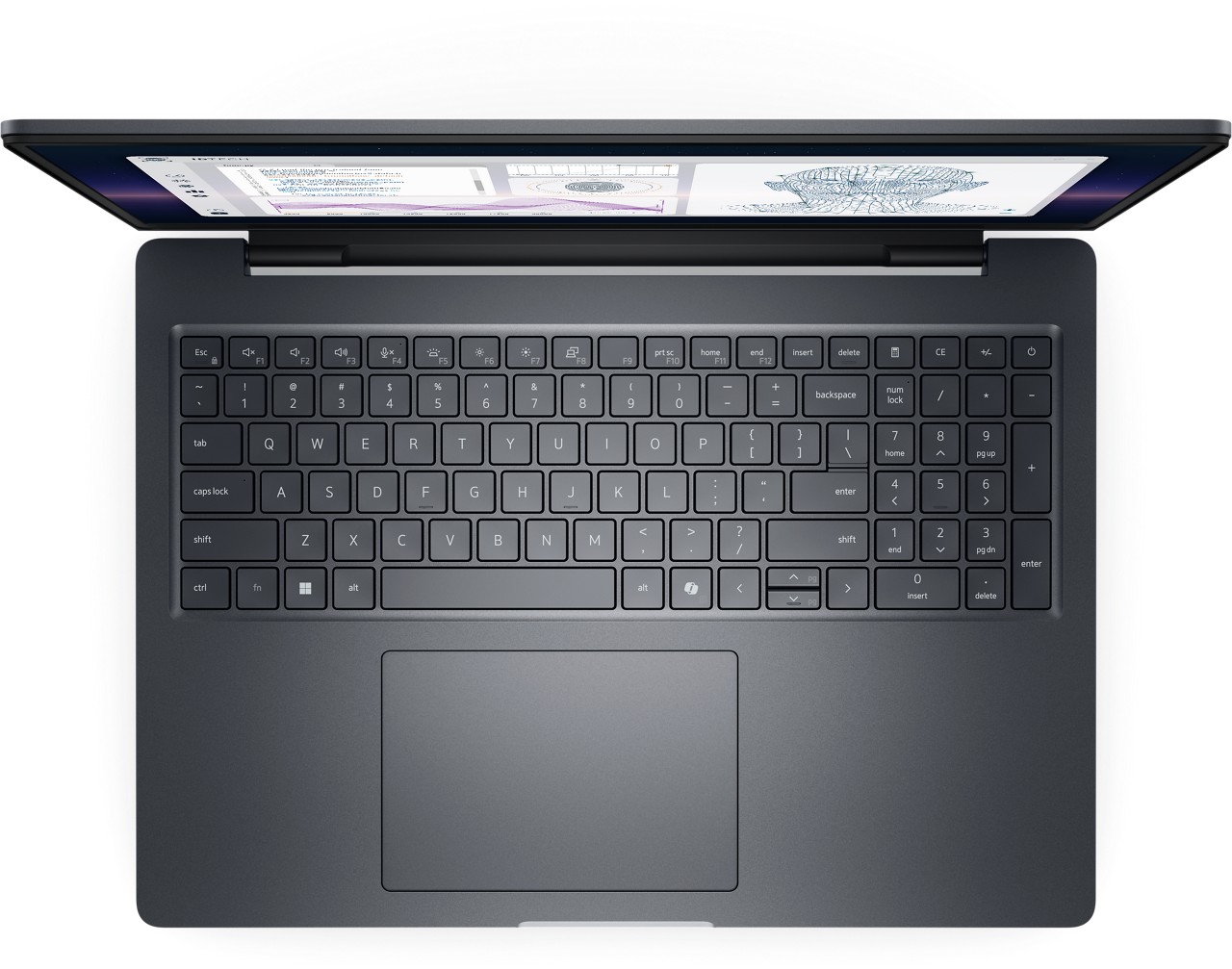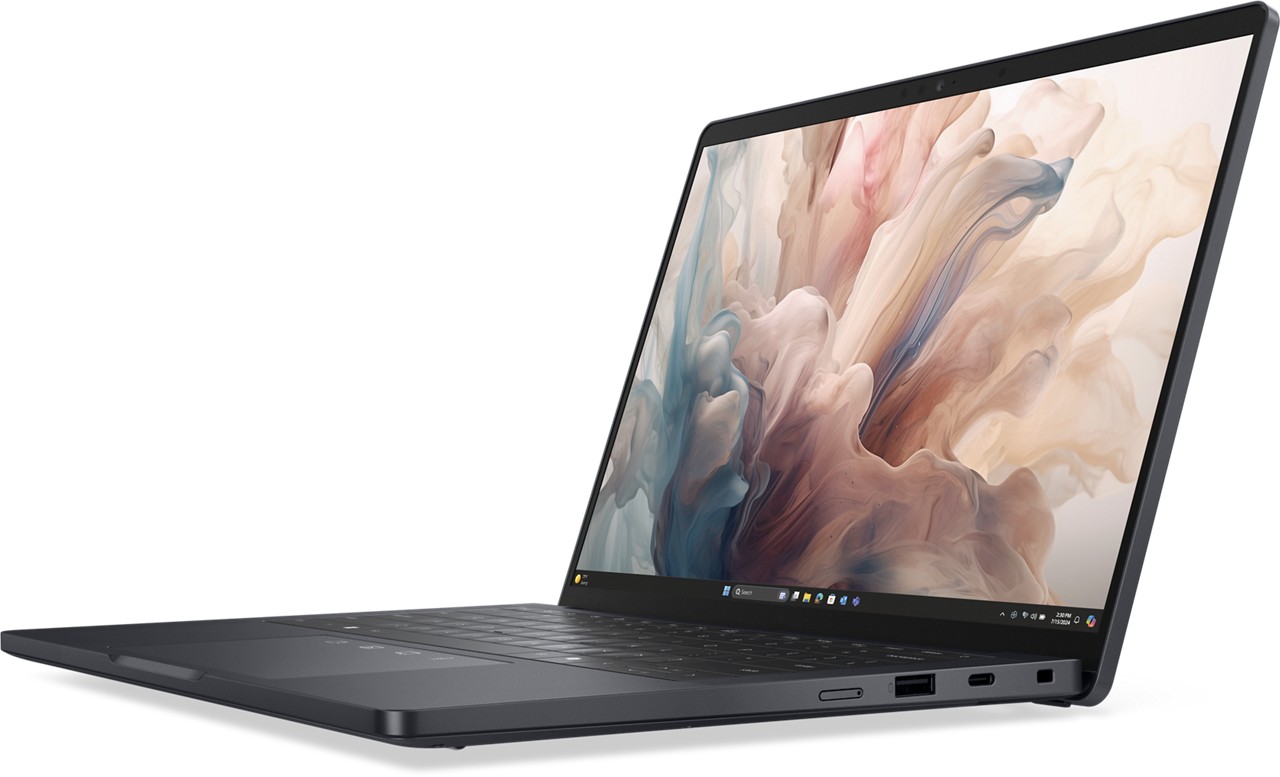Sponsor Content Created With Dell
How Dell Pro AI laptops work and what sets them apart: 5 ROI myths busted

Exploring options for new AI-ready hardware? Dell has been producing work-ready laptops for decades, and is already rolling out notebooks designed to deliver AI benefits to existing and future projects. This may surprise people with traditional ideas on what a Dell Pro laptop can and cannot do…
Mythbusters: Dell edition
With a range of new AI-capable laptops (along with desktop PCs and servers), Dell aren’t just delivering automated productivity boosts, they’re breaking a few myths about what Dell Pro laptops can really do.
Myth 1: Dell Pro laptops can’t handle AI
Truth: New Dell Pro laptops are optimized with on-device AI to help make working days more efficient.
A new Dell Pro laptop with is ideal for everything from standard daily tasks to advanced, AI-based tasks. So, you can effortlessly switch from traditional day-to-day work (e.g. checking emails, browsing the web, creating presentations, and using Microsoft Office) to AI image generation, content creation, and agentic AI queries.
Meanwhile, the built-in security of the laptop is actively monitoring for threats, helping to secure on-device AI and other workloads. For an additional layer of security, customers can opt to add AI-enabled CrowdStrike software for advanced threat detection.
So, how are Dell Pro laptops able to handle AI?
Dell Pro laptops boast Intel Core Ultra processors and integrated graphics, with built-in NPUs (Neural Processing Units). These specialized processors are capable of handling the heavy lifting of AI, freeing up the CPU and GPU, and creating a seamless AI-driven experience. (AMD options are also available.)
Using AI in the workplace can help you to create a presentation based on a simple sentence, improve management of your calendar, and improve multitasking. Tools like Microsoft Copilot and Copilot+ add easy real-time translation, provide quick answers, and offer templates for common document types. Meanwhile, AI is underpinning everything you do, helping the computer’s hardware prioritize resources.
TL;DR: New Dell Pro laptops have all the necessary hardware to support AI, and offer non-AI notebooks too.
Myth 2: Dell Pro laptops don’t have the battery life to run AI apps
Truth: Dell Pro laptops use power efficient CPUs and AI optimization to increase the lifespan of the battery, with the Dell Pro 14 Premium offering up to 21 hours of battery life.
Exceptional battery life is achievable with Dell Pro notebooks, thanks to a combination of power efficient hardware and AI optimizations. For example, a new Dell Pro 14 Premium with an Intel Core Ultra 200V CPU has 51% longer battery life than a similar laptop from 2024.1
Model | Dell Pro 13/14 Premium | Dell Pro 13/14/16 Plus (Intel) | Dell Pro 13/14/16 Plus (AMD) | Dell Pro 14/16 (Intel) | Dell Pro 14/16 (AMD) |
Max battery life | 21.2 hours2 | 18.2 hours3 | 16 hours4 | 10.3 hours5 | 15.1 hours6 |
Meanwhile, the Dell Pro 14 Premium offers a Tandem OLED display that is 24% more power efficient and 49% lighter versus traditional rigid OLED displays7, helping to extend battery life.
Don’t worry about a bulky long-life battery, either. Dell Pro laptops are both slim and light, and are tested to ensure exceptional durability.
To underpin your confidence in AI-based productivity with a Dell Pro laptop, the battery comes with a standard 1-year warranty.
TL;DR: Dell Pro laptops run AI tools seamlessly and efficiently, without draining your battery.
Myth 3: Dell’s AI laptops are a security risk to the entire organization

Truth: The built-in security of Dell's commercial AI PCs helps maintain device and identity trust throughout the lifetime of the PC.
While most attention on attack vectors is focused on the internet, exploits can be introduced into a computer at any stage. Weak supply chains, firmware and operating system flaws, and vulnerabilities in patches and third-party applications can all offer a way in for anyone probing the attack surface.
Dell commercial AI PCs combine robust supply chain controls with optional supply chain assurance (e.g., Secured Component Verification) with built-in hardware and firmware security (like Dell SafeBIOS and Dell SafeID) and “built-on” software security for a multi-layered defense against cyberattacks. Dell takes this a step further with “hardware-assisted security”, where we work directly with partners, e.g., CrowdStrike and Absolute, to integrate hardware and software protections. In doing so, Dell and partners help shrink the IT-security gap that many organizations struggle with, offering integrated BIOS-level threat detection and response capabilties.
These ensure that Dell Pro AI laptops can be effectively managed endpoints, via the Dell Management Portal. With this, IT colleagues can efficiently audit, update, and customize hardware remotely.
TL;DR: Dell has partnered with Intel and Crowdstrike to secure laptops from exploits at all stages of production.
Myth 4: On-device AI is as expensive as cloud AI
Truth: Dell Pro laptops let you do more in less time with on-device AI, without incurring cloud costs
Anyone who has used an AI tool (chat, search, or generative) will know that a significant element of the workload takes place in the cloud. You make a command, a request is sent to a cloud-based LLM and the reasoning takes place – the AI inferencing. When the process is complete, the response is returned, but the process has costs.
With Dell Pro laptops equipped with NPU, the inferencing is capable of taking place on the device, therefore removing any cloud inferencing costs for software designed to use the NPU. Dell AI PCs handle image generation, code generation, content creation, predictive analytics, language processing in real time, agentic AI, and threat detection.
This on-device AI also means that third party and in-house solutions configured to run on an NPU, can be employed, again with reduced costs for cloud processing and inferencing.
TL;DR: AI inferencing takes place on the device, not in the cloud, so costs can be reduced.
Myth 5: You need to pay through the nose for a Dell Pro laptop with AI

Truth: AI-optimized laptops are available across Dell Pro laptop tiers.
Cost plays a major role when buying new PCs. Consider these three Dell Pro laptop tiers designed to fit different needs and budgets: the entry-level Dell Pro, the mainstream Dell Pro Plus, and the top-tier Dell Pro Premium. Each of these tiers offers AI PC options, giving you the flexibility to select the design, specifications, and features that align with your requirements and budget.
Not to mention the fact that in January 2025, TechRadar Pro selected Dell Pro 13 Premium (PA13250) & Dell Pro 14 Premium (PA14250)as two of their best picks at CES 2025.
Additionally, price matching is available against other Dell Pro laptop vendors, so buying direct from Dell ensures the best price.
TL;DR: Looking for new AI laptops for your business? Dell will price match with any other vendor of Dell Pro laptops.
Dell myths? Busted and ghosted
Dell Pro laptops let you do more in less time with on-device AI, and are as suitable for browsing the web and creating presentations as they are for handling more complex tasks.
If you think Dell Pro laptops are the right choice for your business, visit the Dell website to find out which customisable build best suits your needs: US readers can click here, UK readers here, and AU readers here.
1Dell Pro 14 Premium and Latitude 7450 tested. Battery life results were compared for like-to-like configs (i.e., same or similar memory, storage, display, etc.) except for CPU and Battery (3Whr gen over gen increase in capacity) Based on testing using the Mobile Mark 2025 battery life benchmark test in December 2024. For more information about this benchmark test, visit www.bapco.com. Actual battery life may be significantly less than the test results and varies depending on product configuration and use, software, usage, operating conditions, power management settings and other factors. Maximum battery life will decrease with time.
2Battery life up to 21 hours and 10 minutes of battery life with Intel U5-236V, 16GB RAM, 256GB PCIe SSD, FHD Non-Touch 400nits Display, Windows 11, and 60 Whr battery. Based on testing using the Mobile Mark 2025 battery life benchmark test in December 2024. For more information about this benchmark test, visit www.bapco.com. Actual battery life may be significantly less than the test results and varies depending on product configuration and use, software, usage, operating conditions, power management settings and other factors. Maximum battery life will decrease with time.
3Based on testing using the Mobile Mark 2025 battery life benchmark test using Dell Pro 14 Plus with Intel U5-236V, 16GB RAM, 512GB PCIe SSD, FHD+ Non-touch 400 nits display, Windows 11, and 55 Whr battery, December 2024. For more information about this benchmark test, visit www.bapco.com. Actual battery life may be significantly less than the test results and varies depending on product configuration and use, software, usage, operating conditions, power management settings and other factors. Maximum battery life will decrease with time. The stated Watt Hour (Whr) is not an indication of battery life. [ ↑ ]
4Based on testing using the Mobile Mark 2025 battery life benchmark test using Dell Pro 14 Plus with AMD Ryzen AI 5 PRO 340, 16GB RAM, 512GB PCIe SSD, FHD+ Non-touch 400 nits display, Windows 11, and 55 Whr battery, February 2025. For more information about this benchmark test, visit www.bapco.com. Actual battery life may be significantly less than the test results and varies depending on product configuration and use, software, usage, operating conditions, power management settings and other factors. Maximum battery life will decrease with time. The stated Watt Hour (Whr) is not an indication of battery life.
5Based on testing using the Mobile Mark 2025 battery life benchmark test using Dell Pro 14 with ARL U5-225U, 16GB RAM, 512GB PCIe SSD, Windows 11, 400 Nits panel, and 55 Whr battery, March 2025. For more information about this benchmark test, visit www.bapco.com. Actual battery life may be significantly less than the test results and varies depending on product configuration and use, software, usage, operating conditions, power management settings and other factors. Maximum battery life will decrease with time. The stated Watt Hour (Whr) is not an indication of battery life.
6Based on testing using the Mobile Mark 2025 battery life benchmark test using Dell Pro 14 with AMD Ryzen AI 5 PRO, 16GB RAM, 256GB PCIe SSD, FHD+ Non-touch 300 nits display, Windows 11, and 55 Whr battery with pre-production drivers and BIOS, February 2025. For more information about this benchmark test, visit www.bapco.com. Actual battery life may be significantly less than the test results and varies depending on product configuration and use, software, usage, operating conditions, power management settings and other factors. Maximum battery life will decrease with time. The stated Watt Hour (Whr) is not an indication of battery life. 7Based on Dell internal test, November 2024.
Sign up to the TechRadar Pro newsletter to get all the top news, opinion, features and guidance your business needs to succeed!